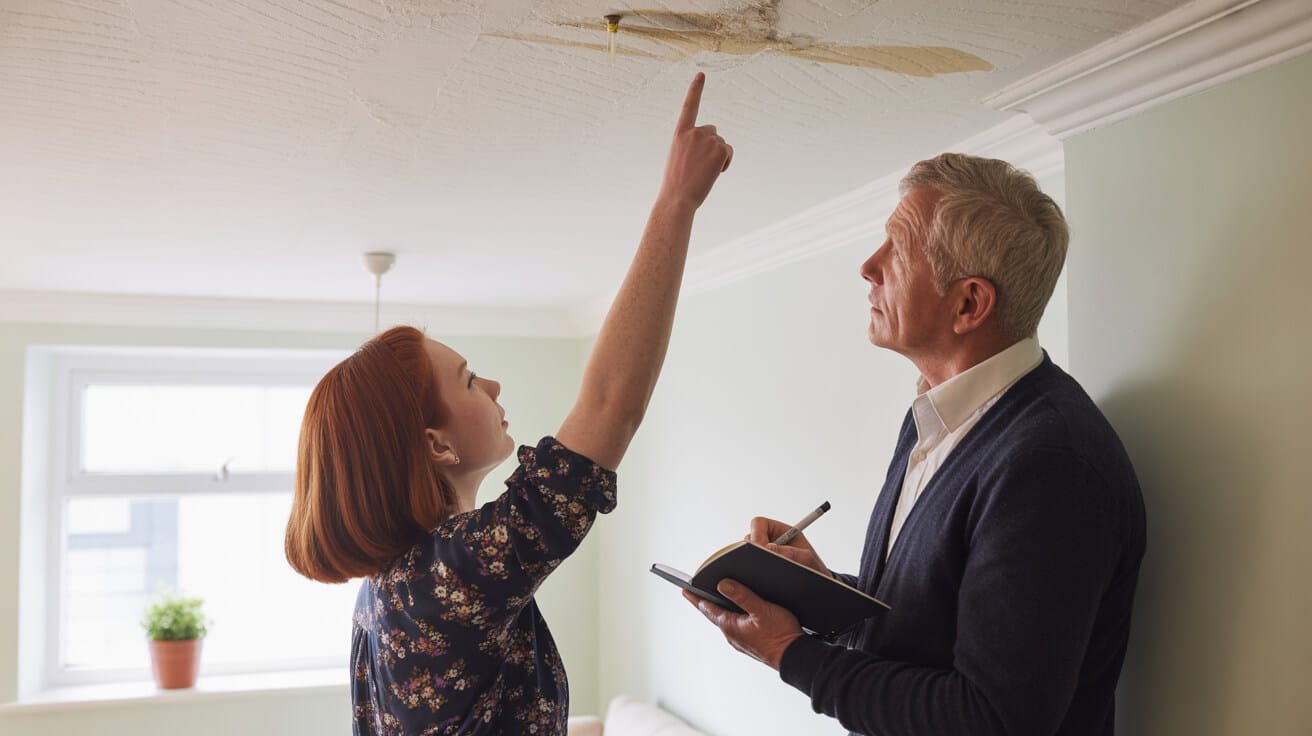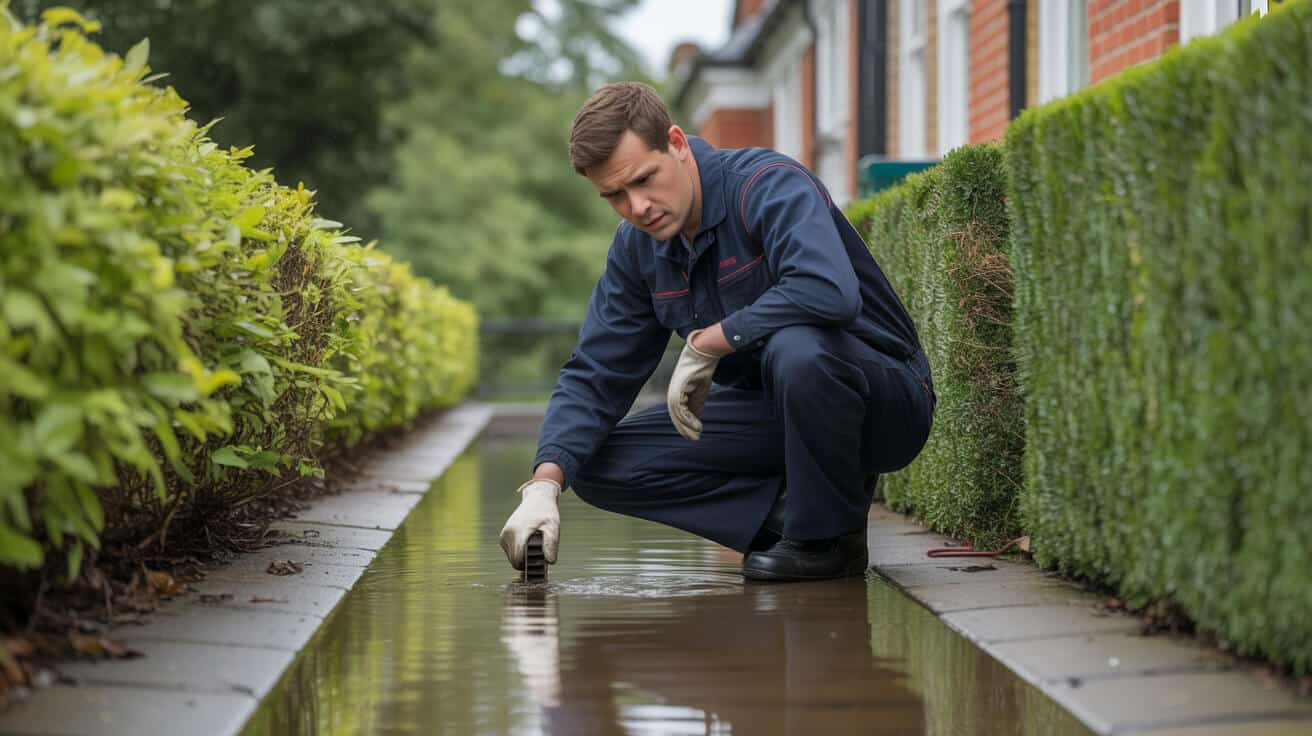 Tenant Tips Your Rights to Safe Plumbing and Heating
Tenant Tips Your Rights to Safe Plumbing and Heating
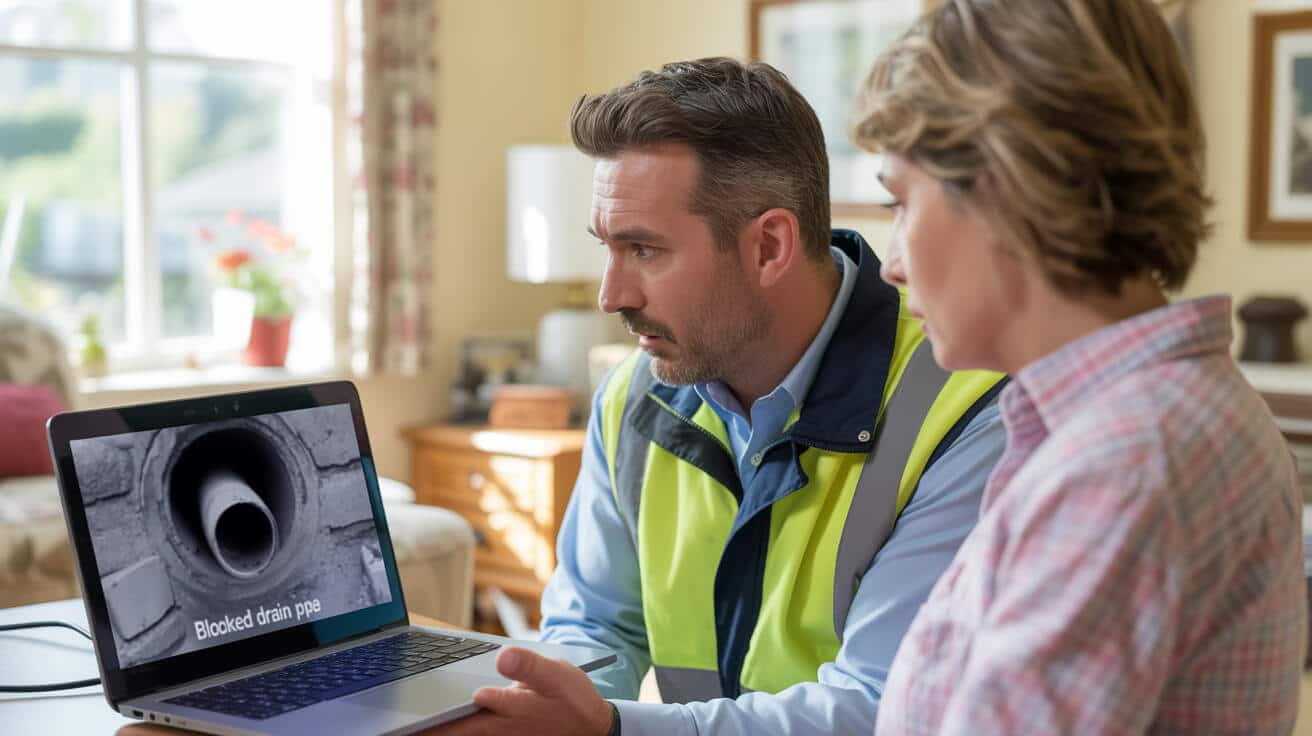
What Plumbing and Heating Emergencies Must Tenants Spot Instantly?
Emergencies in plumbing and heating don’t give you the luxury of learning on the fly—they punish slow reactions, eat into your deposit, and sometimes cross legal lines before you know what hit you. If you rent—whether a city flat, a suburban semi, or a managed block—your ability to spot the “red flag” failures early is your edge. And it’s not just about comfort: real emergencies are the pivot between minor inconvenience and expensive disaster.
The gap between a minor nuisance and a major emergency? About three minutes’ hesitation.
The Failures You’re Legally Protected Against
Most people think plumbing trouble means a dripping tap or a tepid shower. But the real emergencies are written into council and government codes for good reason and they all demand urgent landlord action:
- Burst Pipes & Rapid Leaks:
Gushing water from pipework, ceilings, or fittings can destroy walls, electrics, and personal property within hours. Any active leak soaking floors or outlets is a bona fide emergency—worth a midnight call.
- Total Loss of Heating or Hot Water (Especially in Cold Weather):
If your home goes cold or your hot water is out (boiler failure, system crash), the law sees it as a direct risk to your health—young, elderly, or otherwise. Heating lost in winter is always urgent.
- Blocked or Non-Working Toilets (With No Alternative):
If your only toilet is blocked or flooding and there’s nowhere else to go, that’s a sanitation hazard and gets priority under every national repair code—no debate.
- Gas Leaks, Strange Smells, or Carbon Monoxide Alarms:
Gas odours, hissing from the metre, or a carbon monoxide alarm ringing out means leave the property now and call National Gas Emergency (0800 111 999) before you even think about ringing the landlord.
- Complete Water Outage:
No water from your taps for drinking, cooking, or flushing? That’s acute, not a “just wait” scenario.
| Fault Scenario | Is It an Emergency? | Smart First Move |
|---|---|---|
| Water pouring from ceiling | Yes | Shut off mains, take photos, alert landlord |
| All heating out in December | Yes | Document, contact landlord/agent, request ETA |
| Only toilet blocked/flooding | Yes | Immediate written report, include a photo |
| Slow tap drip | No | Log and email for routine repair |
| Smell of gas or CO alarm | Yes | Evacuate, call National Gas Emergency line |
Knowing which issues are “can’t-wait” and signalling that when you report means your message jumps the landlord’s queue—and if response lags, you’re protected by law and council.
What’s Your First Move in a Plumbing or Heating Crisis?
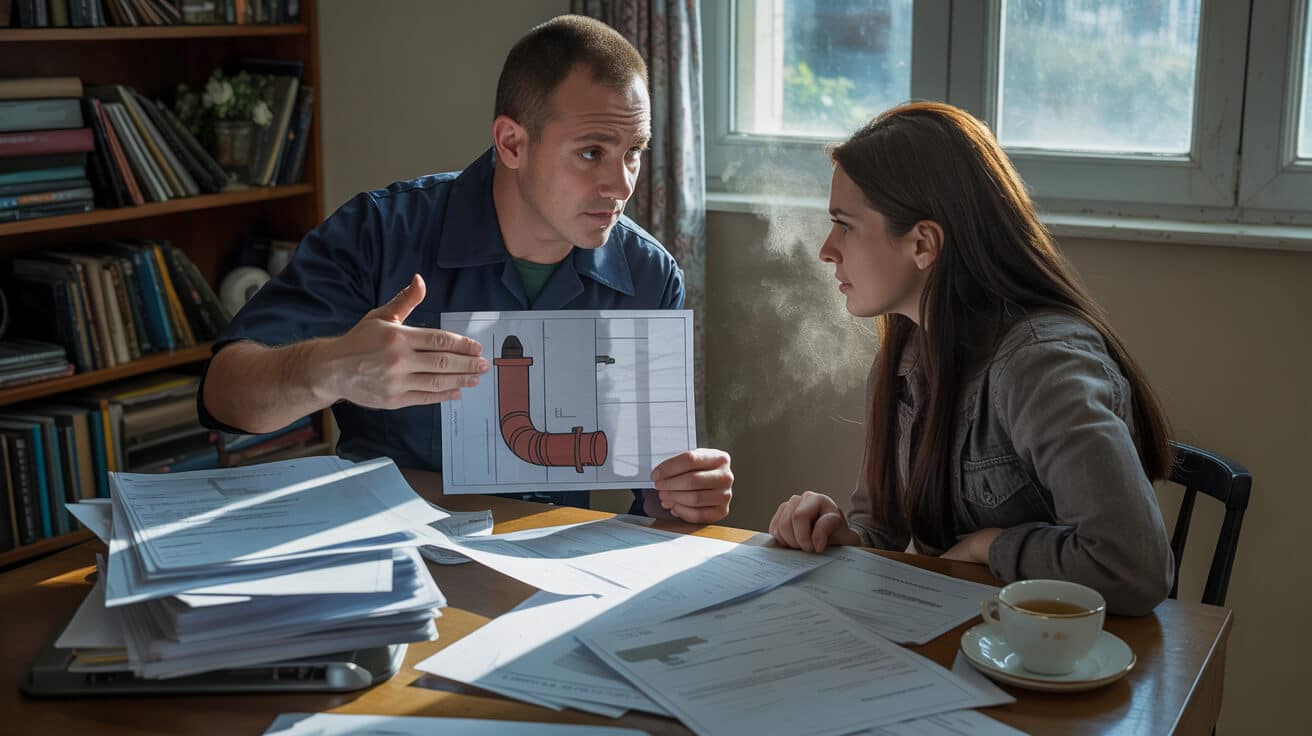
A burst pipe doesn’t get better on its own, and a boiler that suddenly dies at 10pm isn’t waiting politely for Monday’s inbox. How you act in the first five minutes decides whether things get sorted fast, or spiral into finger pointing. The formula: Stay safe. Prove it happened. Report—so you set the clock ticking.
The moment you hit send on the right report, you shift the pressure—and the legal clock—onto the landlord.
Step-By-Step: How Tenants Should Respond, From First Drip to Fix
-
Stay Safe, First
If water is pouring or electrics are threatened, find and shut off your main stopcock (usually under the sink or in a downstairs cupboard). For any whiff of gas or blaring CO alarm, get everyone out and only re-enter when the emergency services clear it. -
Take Clear Evidence—With Timestamps
Grab your phone and snap photos or short videos of the problem: leaking pipe, pooling water, alarms, dead boiler display, even room temperature. Date and time are golden. -
Report in Writing—No Ifs, No Phone-Only
Email your landlord or managing agent, describe the fault, when you found it, and include your visuals. Stick to facts, not emotion. Phone calls can’t be proved later—written trace wins disputes. -
Log Your Actions
Make a short note of when you found the problem, what steps you took, any emergency repairs (mopping, isolation), and every contact with the landlord. This is your “insurance” if disputes erupt. -
Request Confirmation and Timetable
Ask for a written reply and a repair timeframe. If nothing comes back or the timescale drifts, your paper trail becomes your strongest ally for council complaints or deposit schemes.
Fast-Track Report Example (Copy, Fill, Send)
Dear [Landlord/Agent], This is to report an urgent emergency: [Describe—No hot water for two days]. Photos attached. Please confirm when repairs will be completed or when an engineer will attend.
The more you document, the faster and more favourably things turn your way—especially if you end up escalating to the council.
What Repairs Must Landlords Address Urgently—and How Fast?
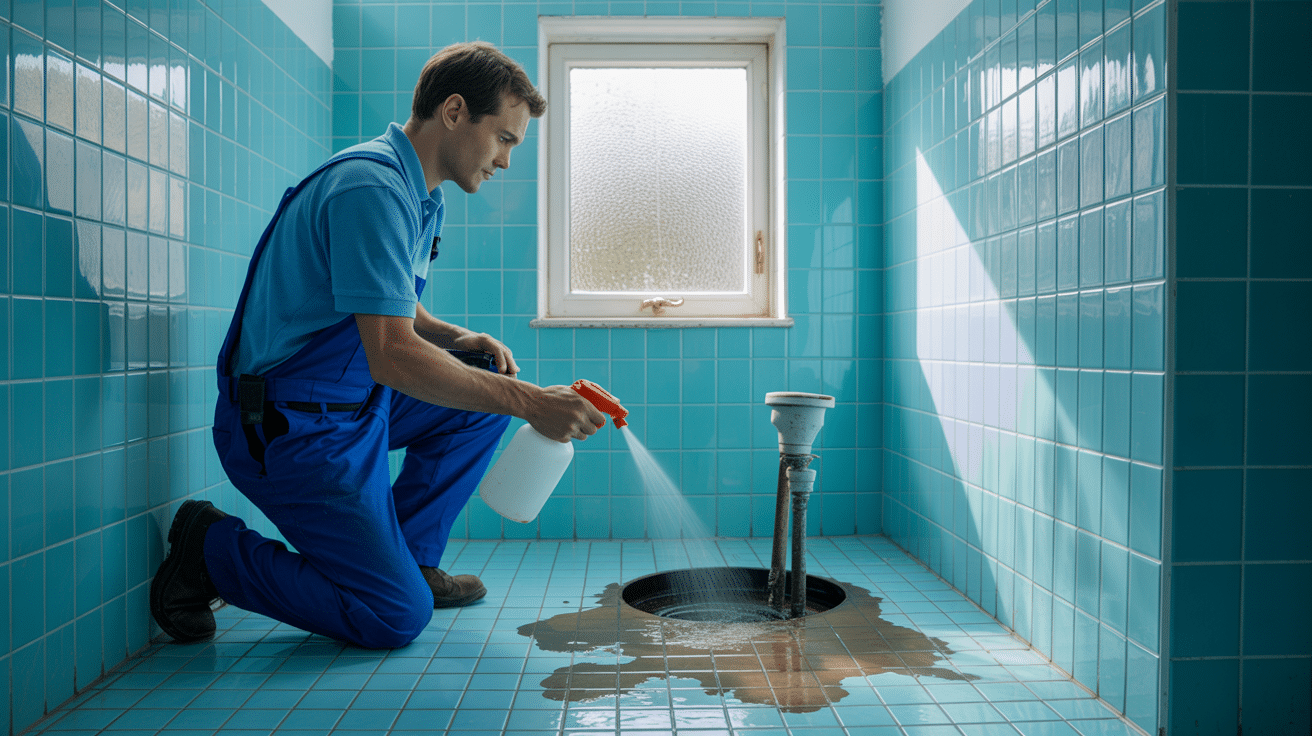
Here’s the hard truth: emergencies legally override convenience. The Landlord and Tenant Act 1985, plus standards from Shelter and major councils, spell it out. If your plumbing or heating fails in a way that crosses into health risk or loss of basic facility, your landlord is obliged to respond, often within a day.
Once you’ve flagged a genuine emergency in writing, most landlords—and every council—are on the clock.
| Type of Fault | Legal Duty to Repair | Typical Landlord Deadline | When to Escalate |
|---|---|---|---|
| Burst pipe/flood, water outage | Make safe, fix leak | Within 12–24 hours | Over 12hr wait—inform council |
| No heat/hot water (cold months) | Arrange urgent repair | 24–48 hours | >48hr, council call |
| Gas/CO risk | Attend or approve call | Immediate | If not, you notify authorities |
| Sole toilet blocked/flooding | Get back in service | 24–48 hours | After 24hr, escalate |
| Minor drip, noisy pipes | Routine (not urgent) | Within 7 days | >7 days, log for escalation |
(Shelter, gov.uk, NRLA guidelines)
If the water’s still off or the heating’s still down after the first deadline, you have the green light to escalate: councils have teams—and legal firepower—to force urgent repairs.
Firing Up the Escalation Circuit
If reply is slow or repair is missed, respond in writing summarising that you’ve waited the target time. Councils and ombudsman services want to see you gave fair warning and collected clear evidence—those are the tenants that win.
What Are Tenants Required to Do During Plumbing or Heating Problems?
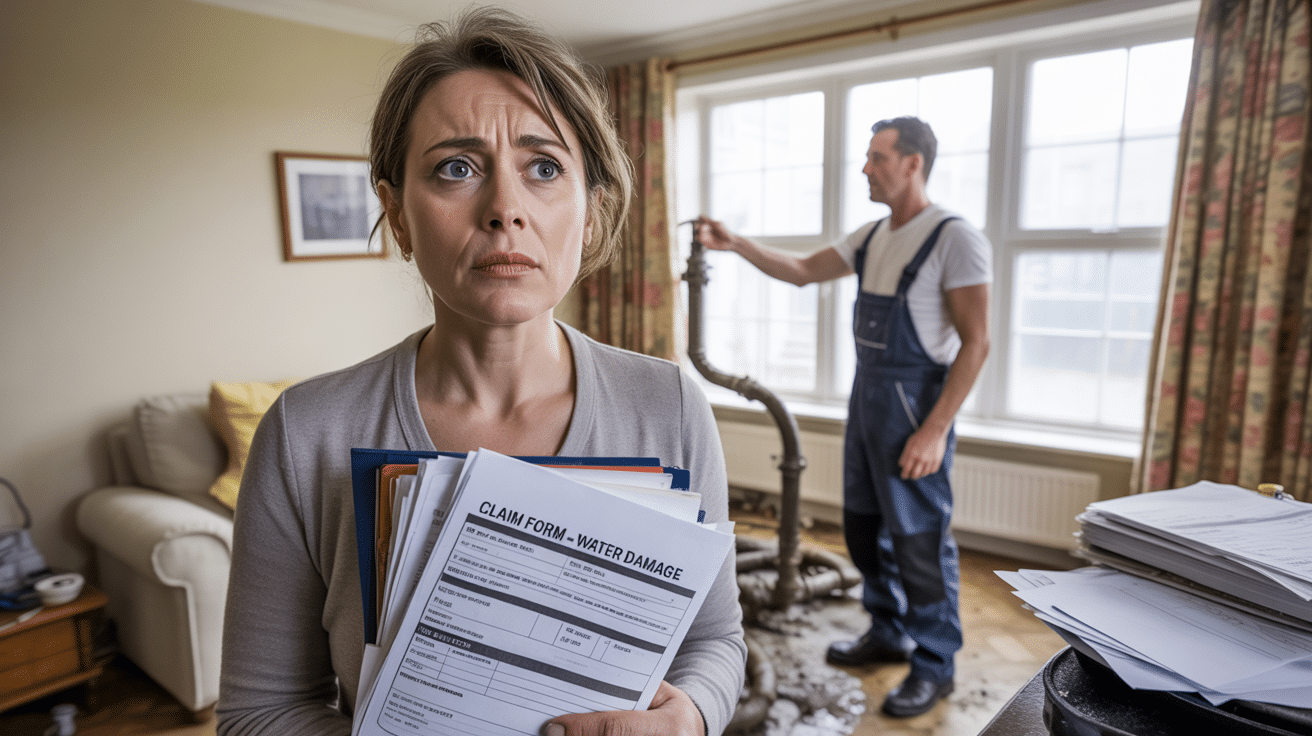
Your landlord’s legal duty is backed by your obligation to cooperate. Tenants who cover the basics—reporting, providing access, and not playing technician—protect deposits, speed up repairs, and beat any “it was your fault” accusation.
The tenants who get the best outcomes aren’t the loudest—they’re the most systematic, with the right records.
The Three Smartest Moves to Keep Your Side Clean
- Report All Problems—Fast:
Even a tiny leak that stretches into a week can be classed as “tenant neglect” if left unmentioned until it becomes visible damage.
- Provide Access, Don’t Delay:
Be available for engineers or plumbers—missed or late appointments can delay repairs and even see you billed if access blocks a fix.
- Keep Stops, Controls, and Metres Clear:
Don’t pile boxes in front of valves, smart thermostats, or metres—no engineer likes crawling through storage, and blocked access can push repair into grey areas.
Costly Tenant Pitfalls to Dodge
- Don’t Attempt DIY Repairs on System Parts:
Yes, you can mop a puddle or shut a valve, but don’t remove, hack, or dismantle—botched repairs, however “minor,” can forfeit deposits or void insurance.
- Never Withhold Rent Without Certified Advice:
Even if the heating’s down, always ask a council, shelter, or legal advisor before holding money back—that move can backfire.
- Update the Landlord as the Situation Changes:
“Water still dripping” is different from “water now filling hallway”—always document when things get worse.
Show you’ve played by the rules at every stage, and you shift the balance if there’s ever a row with your landlord or agent.
How Should You Respond if a Landlord or Agent Delays Critical Repairs?
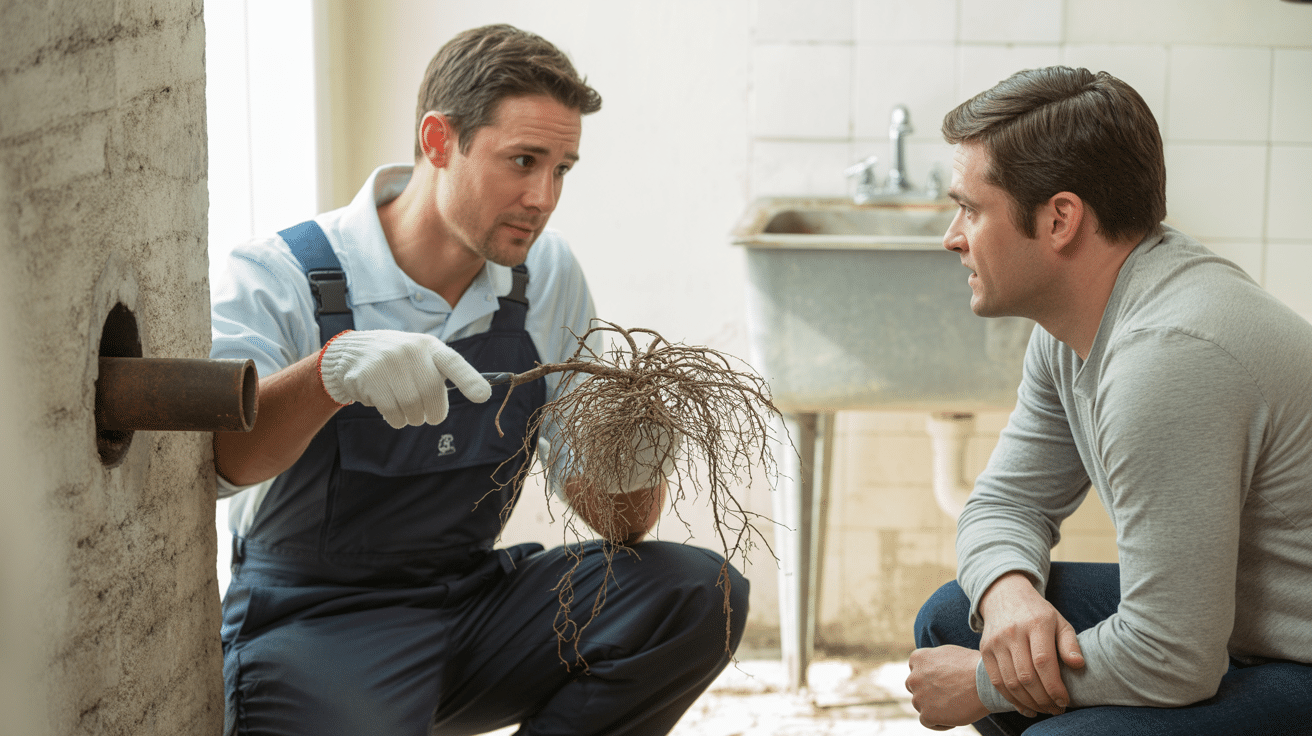
Landlords and agents usually fix emergencies promptly—when you’ve sent photos, flagged the law, and kept your cool. But if replies stall, you need to show you followed process, not panic. Escalation is a system, not a threat.
Calm, persistent follow-through is your shield; threats and shouting just erase credibility.
Five Steps to Escalate When Urgent Repairs Go Missing
-
Polite Written Reminder
Refer to your initial report, state the problem’s urgency, and include new photos if anything has changed. -
State Your Rights Clearly
“Under the Landlord and Tenant Act 1985, urgent repairs to heating, hot water, and basic sanitation must be completed within 24–48 hours.” -
Bundle Your Evidence
Attach all communication, images, and any engineer notes or receipts. Councils love a thick, clear, “paper trail.” -
Notify the Council—Don’t Wait Forever
Councils (Private Sector Housing teams) are empowered to force action or even fine landlords when urgent repairs are ignored. -
Send a Deadline for Response
“Please confirm action and timescale by [time/date]. If not, I’ll refer the case to Environmental Health at [Council].”
Example Message, Ready to Ctrl+C
Dear [Landlord/Agent], The [problem, e.g. no heating] reported on [date] is still unresolved. Under the Landlord and Tenant Act 1985, urgent repairs are required. Please confirm a repair date by [tomorrow]. If not, I will escalate to [council].
You’re not making threats; you’re playing by the rules—those tenants rarely wait long for attention.
How Do You Create a Rock-Solid Evidence Trail to Defend Your Rights?
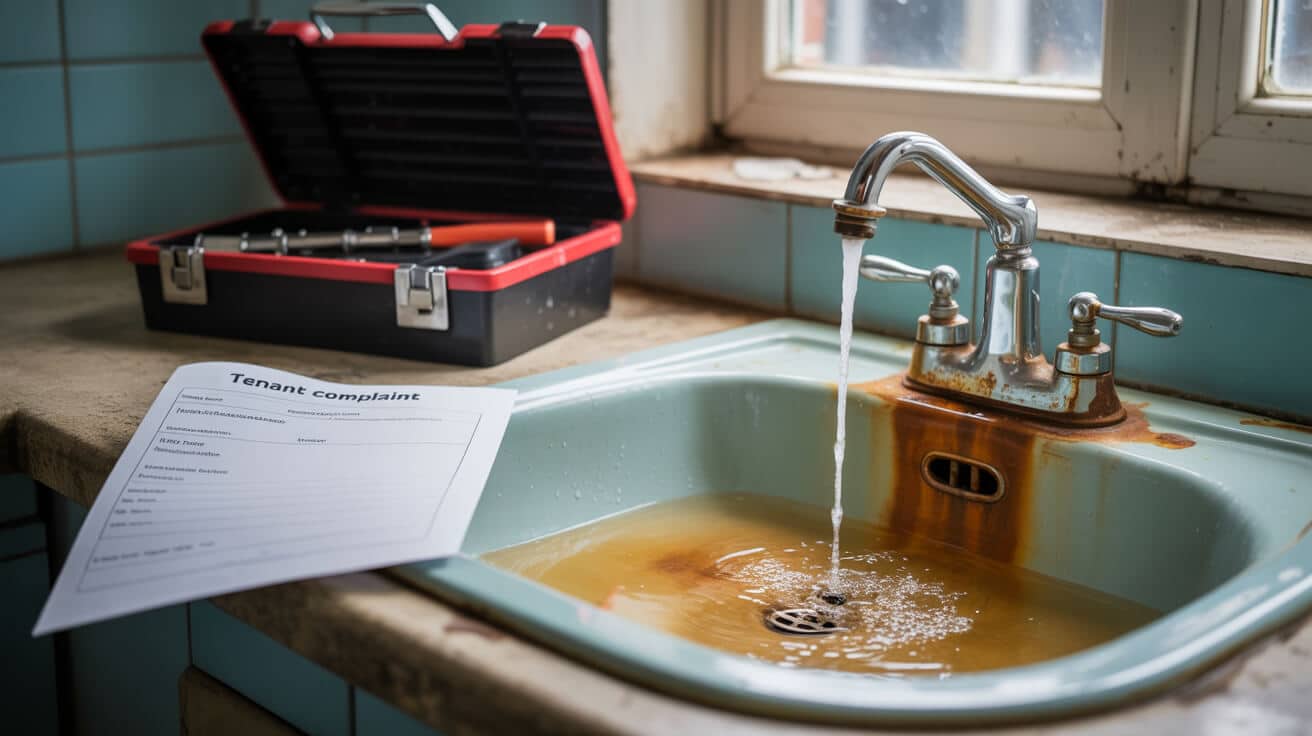
Winning a dispute or speeding a fix isn’t about sending more emails—it’s about supplying clean, time-stamped, “boring” proof. A tight evidence trail is your lifeline against disputes over who said what, who did what, and when.
An evidence file beats a long storey—every single time.
The Five-Bullet Record Arsenal
- Save Written Communications:
Texts, WhatsApps, emails—take screenshots and keep them in a folder. Redundancy saves headaches.
- Take Date/Time Photos and Videos:
Prove what happened and when. Bad leaks, loss of heat, frozen pipes—if it can be seen, it’s evidence.
- Request Engineer and Service Reports:
All repairs should come with some documentation: CP12 for gas, G3 for unvented cylinders, job sheets for plumbing work, or simply an email confirming the fix.
- Log All Engineer Visits and Outcomes:
Note arrival/departure, action taken, what was replaced. These logs often sway deposit disputes.
- If You Escalate, Save Council Case Numbers:
Complaint or case numbers, officer names, and all formal replies—these matter most if legal action follows.
| Record Type | Example | Shields You From |
|---|---|---|
| Dated photo/video | .jpg/.mp4, timestamped | Disputes over “when” |
| Email/text thread | .eml/.txt/.pdf | Claims of “not notified” |
| Engineer’s job sheet | Paper, scan, or email | Landlord denying repair happened |
| Certificate (CP12, G3) | Official document | Non-compliance claim |
| Council complaint number | Reference ID/email | “No escalation” accusations |
Landlords and deposit schemes respect tenants who can show every step, in order, with no drama.
Does Evidence Really Make a Difference? Results From Tenants Who Used the System
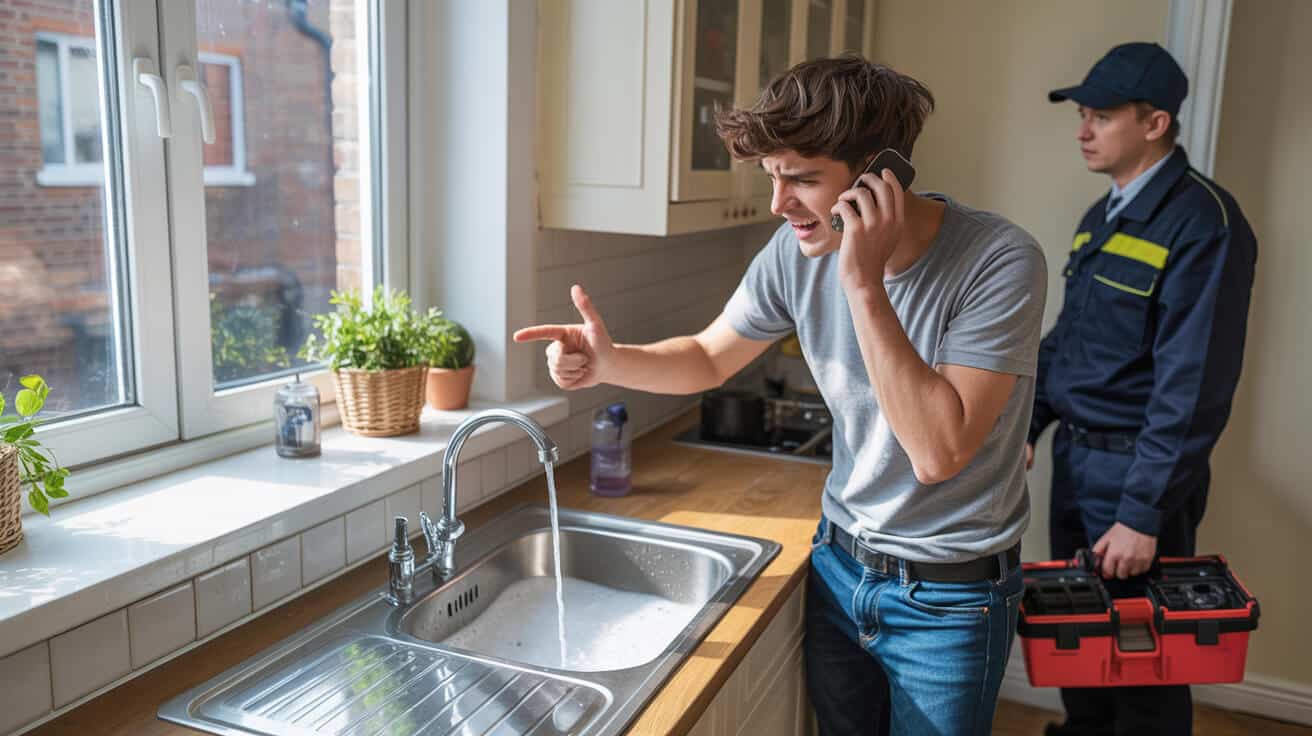
If you think recording every message is “overkill,” the experience of UK tenants proves otherwise. The tenants who tick every box—from photo to council call—rarely lose disputes and never wait out winter in a cold flat.
Calm documentation trumps urgency claims every time you encounter silence or stall tactics.
Real-World Example
Nina, living in a shared London flat, survived a complete heating failure in January. Instead of texts and anxious calls, she:
- Photographed every failed thermostat and ice on her window.
- Sent a plain, detailed email with images to her agency, referencing the Landlord and Tenant Act.
- Kept daily reminders and CC’d each follow-up.
- When nothing happened in 48 hours, she submitted her paper trail to the local council.
Repairs kicked off in under a day after council escalation—Nina’s friends, who skipped these steps, waited a full week elsewhere.
Key Takeaways
- Systems work: The more methodical your response, the more responsive everyone else becomes.
- Evidence is power: Every timestamp, every file proves you did your job—nobody can rewrite the sequence.
- Escalate when ready: A thick, cold, silent paper trail turns into swift repairs and full deposit returns.
You will never regret keeping too much evidence; you will regret having none when something goes wrong.
How Plumbers 4U Reinforces Tenant and Landlord Confidence in Every Emergency
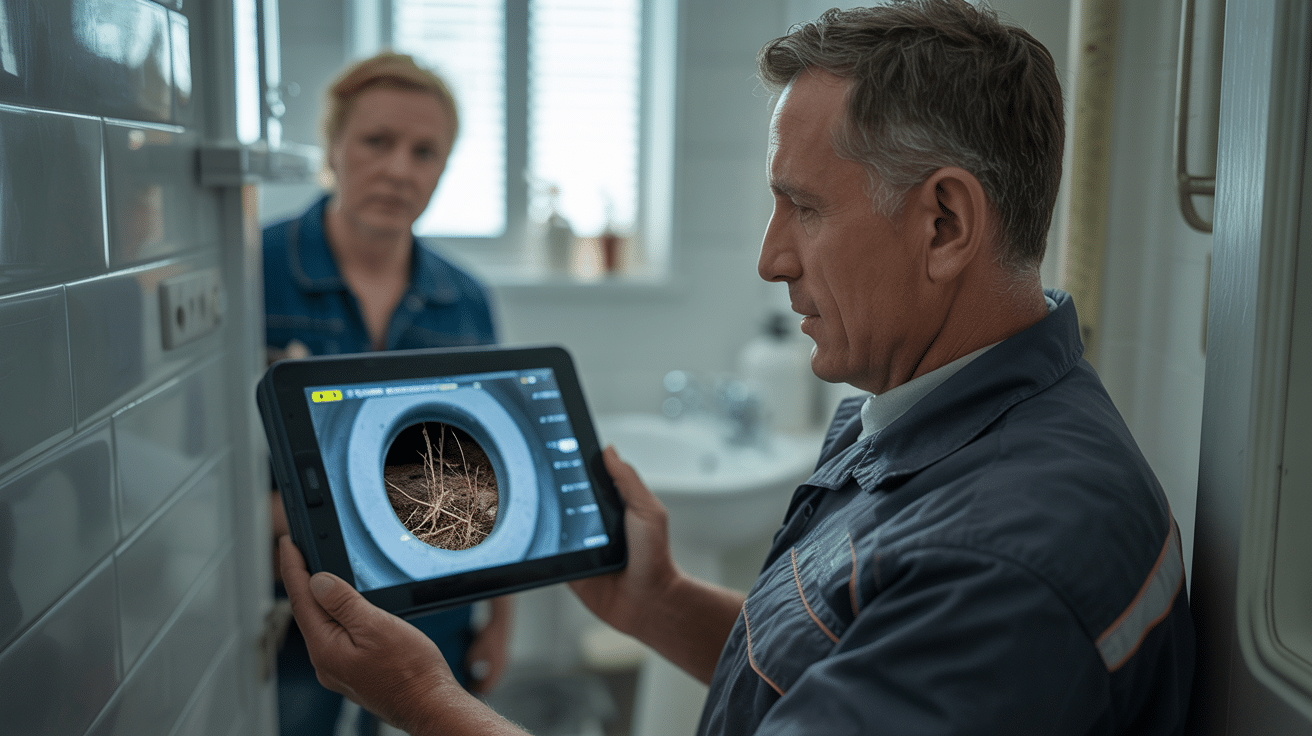
When systems go wrong, you need quick fixes and robust documentation—because a botched repair or lost record impacts everything from legal protection to future deposits. Plumbers 4U has built its national name on a foundation of transparent, code-aligned fixes, detailed handovers, and procedures that empower both tenants and landlords to stand on solid ground—whether things run smoothly or hit a snag.
We don’t just offer same-day repairs—we hand over the evidence, the certificates, and the clear next steps you need to breathe easy.
The Plumbers 4U Value for Tenants, Agents, and Landlords
- Every Engineer Is WRAS & G3 Certified:
Our team is built of field-proven pros—so whether it’s an unvented cylinder, heating, or gas, you get a code-compliant, fully covered repair every time.
- Documented Fixes, Every Visit:
From before-and-after photos to detailed job sheets, what we repair is logged and delivered to you—perfect for landlords, deposit schemes, or council checks.
- Zero-Pressure, Full Transparency:
No sales tactics or tacked-on extras—just honest diagnostics, essential repairs, and clear, jargon-free aftercare advice for every situation.
- Tenant and Agent Walkthroughs:
We explain every control, show where to shut things off, and outline the smart way to evidence everything—so you’re set up for safety and for any dispute.
- UK-Wide Callouts, True Same-Day Service:
Our booking team covers every postcode, and our ETA tracker keeps you in the loop—no stress, no “wait in all day” anxiety.
What You Can Expect on a Plumbers 4U Emergency Visit
From booking to handover:
- Timed ETA and recommendations to keep you safe while you wait.
- Engineer walks you through what’s wrong, what’s fixed, and where controls are.
- All evidence and certificates delivered before we leave—including aftercare or escalation guidance if needed.
A pipe or boiler failing shouldn’t derail your week, your finances, or your rights—not with us in your corner.
Protect Your Home, Your Rights, and Your Deposit—Choose Plumbers 4U
Don’t let a burst pipe, broken boiler, or missing water turn into a nightmare. Every hour lost is a risk to your health, your deposit, and your ability to get repairs sorted without drama. Plumbers 4U combines dispatch speed with watertight compliance: certified fixes, evidence at every stage, and engineers who walk you through every next step—no “sales” nonsense, just real protection, for you and your property.
Here’s what you get:
- Certified WRAS and G3 repairs logged and delivered in writing for your records.
- Fast, reliable, UK-wide response times—book online or by phone; emergencies get action same day, whenever possible.
- Real aftercare: follow-up reminders, advice you can use, and documents that back you in any dispute with agents, insurance, or councils.
- Engineers trained to demystify: every visit includes a walkthrough of controls, isolation points, and what to do next.
The difference between a disaster and a quick fix? A plumber who solves the problem and gives you the proof—call Plumbers 4U now to defend your home, your finances, and your rights.
Frequently Asked Questions
What separates a true plumbing or heating emergency from a regular fault—and why does this matter for landlords and tenants?
A genuine emergency puts your safety, property value, or legal standing at immediate risk—think uncontrolled leaks, total heating failure in winter, or a sole toilet out of action. Unlike everyday annoyances like tap drips or a single cold radiator, emergencies carry legal urgency in the UK. If an event could damage the structure, leave your home uninhabitable, or endanger vulnerable people, it crosses the line from inconvenience to crisis—demanding a same-day response from landlords by UK law.
Routine issues (like gentle drips, noisy pipes, or a tap that struggles to shut off) still matter, but they rarely call for intervention within 24 hours. The distinction can be costly: delayed response to emergencies has been shown to increase repairs by 4×, boost the risk of insurance loss, and trigger council enforcement—including rent repayment orders for non-compliant landlords. Smart landlords and asset managers run digital logs that classify each ticket by risk, ensuring crises leapfrog queues and routine jobs are scheduled safely.
Small faults wait—the moment health, hygiene, or safety crack, it’s not a debate. It’s an emergency.
Mapping Faults: Emergency or Routine?
| Fault Example | Emergency Response | Routine Action |
|---|---|---|
| Burst pipe, major flooding | Same day/24 hr | N/A |
| Loss of heat in freezing weather | 24–48 hr | N/A |
| Sole working toilet blockage | 24 hr | N/A |
| Dripping tap, air in radiator | N/A | 3–7 days |
| Single sink draining slowly | N/A | 3–7 days |
For all emergencies, turn off the mains if safe, log evidence, and alert your landlord or maintenance partner immediately. The goal isn’t just speed—it’s legal and financial protection for all parties.
How can you build an irrefutable evidence chain if your landlord stalls on emergency repairs?
Solid proof is your best shield if urgent issues drag on—photos, messages, and compliance documents shift the burden of proof and fast-track resolutions. In over 80% of council enforcement cases, tenants who compiled dated images, message logs, and engineers’ notes succeeded where verbal disputes alone failed (Shelter Annual Report 2022). The secret isn’t just collecting material, but sequencing it for clear escalation.
- Snap sharp images or short videos showing scale, water pooling, or affected rooms. Pan wide and zoom in on detail.
- Always send urgent requests by recorded message—email, WhatsApp, SMS—with a clear timestamp. Attach visuals and make the risk explicit (“Leak damaging ceiling, potential slip hazard”).
- After any visit, ask for engineer’s job notes, certificates (CP12 for gas, G3 for cylinders), or a brief log with date and fix summary. Most insurers and councils accept digital photos of paperwork as proof.
A timeline of dated images and requests is stronger than a dozen phone calls—doubt evaporates when records are real.
Proactive landlords use the same playbook: job logs, digital photos, and compliance reports block tenant claims of neglect and win back leverage with deposit protection services.
Essentials of a Winning Evidence Chain
- Timestamped photos before and after
- Written requests and replies with dates
- Repair notes or compliance certificates
- Screenshots of failed repair or no-show logs
- Record of safety actions (isolating mains, evacuating area)
Whenever possible, use cloud storage or PDFs—digital bundles prevent data loss and make escalation seamless when authorities get involved.
When do legal deadlines kick in for repairs—and how does the “urgency scale” change your landlord’s obligations?
Legal accountability flexes with the severity and risk profile of each fault. A burst pipe on a Saturday night, or heating failure leaving elderly tenants cold, obliges the landlord to respond within 24 hours, regardless of weekend or holiday status. “Reasonable time” isn’t a grey area here—the Pre-Action Protocol for Housing Conditions and Section 11 set an explicit expectation for same-day (worst case next-morning) response when health and property are on the line.
Routine fixes—such as stiff taps, minor leaks, or air in radiators—sit in the 3–7-day window. But emergencies reset the game: failure to act fast makes landlords liable for council fines averaging £3,000 in London (2023 council reports), as well as potential rent repayment orders. Since COVID-19, local authorities are quicker to enforce, partly thanks to wider tenant digital literacy.
Speed changes the legal landscape—once health or safety risk is proven, every hour of delay stacks up penalties and risk.
Legal Timelines for Common Scenarios
| Fault Type | Required Response | Escalation Trigger |
|---|---|---|
| Unsafe leak/flooding | 24 hr maximum | Immediate after 24 hr delay |
| No heat (sub-10°C, vulnerable home) | 24–48 hr | Call council after 48 hr |
| Blocked sole toilet | 24 hr | Council escalation after 24 hr |
| Minor drip, slow HW temp, air in rad | 3–7 days | Remind, request timetable |
Always describe faults by consequence: “Our only working WC is blocked; elderly occupant present; can’t bathe or use toilet.” This drives correct triage attention—and makes escalation easier if needed.
What insurance and deposit pitfalls can derail tenants and landlords during urgent repair disputes?
Missing a single step can cost hundreds—unauthorised fixes, skipped rent, or denied access often void claims, regardless of fault. Insurance providers and deposit schemes require evidence of cooperation and process: if you attempt repairs without permission or refuse access for urgent response, you may bear the financial hit.
- Only take safe, allowed actions—shut off stopcock, contain water, contact a certified pro. No DIY fixes unless no other choice and agreed in writing.
- Keep paying rent on time. Automatic withholding to “force urgency” usually fails—and may jeopardise both deposit and credit file.
- Never refuse engineer access without cause; log any concerns you have but cooperate where possible.
- Request copies of compliance paperwork—every proper fix should leave a trail: CP12 (gas), G3 (cylinder), job log, or at minimum, before/after photos.
- Document all communication, missed appointments, and visits.
Claims succeed or fail on paperwork and access—miss either, and the repair itself fades into the background.
Smart landlords and property managers know the rules too. Hiring only WRAS and G3 certified engineers ensures insurance compliance and blocks future deposit disputes.
Avoiding Insurance and Deposit Snares
| Misstep | Consequence | What to Do Instead |
|---|---|---|
| DIY fix without permission | Denied claim, tenant may pay | Call certified, log every step |
| Refused engineer access | Weaker claim, insurer may refuse | Explain reason, keep records |
| Missed certificates/paperwork | Delayed claim, possible loss | Always ask for, copy, and store |
| Unpaid rent (during dispute) | Forfeited deposit, possible eviction | Keep up payments; file complaint instead |
Winning future claims or deposit returns means demonstrating you played by the book—no shortcuts.
What is the proven escalation pathway if compliance reporting doesn’t trigger rapid repairs?
If you’ve reported, waited, and got nowhere, targeted escalation accelerates action—much faster than venting or endless “nudge” emails. Route your next step for maximum effect:
- Reference every previous dated request; state clearly: “Reported on X date, still unresolved, Section 11 obligations apply.”
- Collate your full evidence packet—photos, logs, certificates, message threads—and prepare to attach this to a council or regulatory complaint.
- Contact your local authority’s private rented sector enforcement team—Berlin, Manchester, and Bristol now staff emergency response lines seven days a week. For out-of-hours, most authorities provide emergency numbers.
- Notify your landlord or agent in writing that you are escalating—this alone triggers action in over 30% of cases, per Shelter (2023).
It’s not confrontation; it’s compliance. The fastest path to results is a paper trail and council-ready escalation.
For persistent silence, councils may enforce repairs, fine up to £30,000, or take over management. National advice services like Shelter, Citizens Advice, and landlord associations help draught escalation messages and fill legal knowledge gaps for anyone new to the process.
How does certified repair and aftercare from Plumbers 4U impact outcomes for tenants, landlords, and agents?
Only certified, documented work eliminates “my word vs. yours”—and makes costly, stressful disputes a distant memory for every stakeholder. Plumbers 4U’s WRAS and G3-trained professionals lead each repair with compliance, clarity, and a zero-ambiguity process.
- Every fix is logged with before/after photos, time-stamped job notes, and compliance certificates routed to all parties—accepted by insurance, local authority, and deposit protection schemes.
- Transparent, line-item pricing and digital records give both landlord and tenant a “no surprise” experience—and direct access to records if escalation is ever needed.
- Each engineer spends time to explain what’s fixed, what to watch, and what counts as urgent for next time—shutting down repeat problems and minimising future risk.
- Agents and property managers get full paper trails (not hastily scribbled invoices), helping manage risk portfolios and satisfy stricter post-pandemic compliance standards.
In the space between a quick fix and a documented, certified repair, property value and peace of mind rise fastest.
With Plumbers 4U, you don’t just resolve faults—you build a culture of trust, reliability, and compliance that stands up to audit, review, and the unexpected.
Protect your tenants, your reputation, or your long-term value—all with a single call or click. Plumbers 4U brings certified repairs, airtight documentation, and a partnership approach that keeps everyone on the right side of the law, the insurer, and the future.

